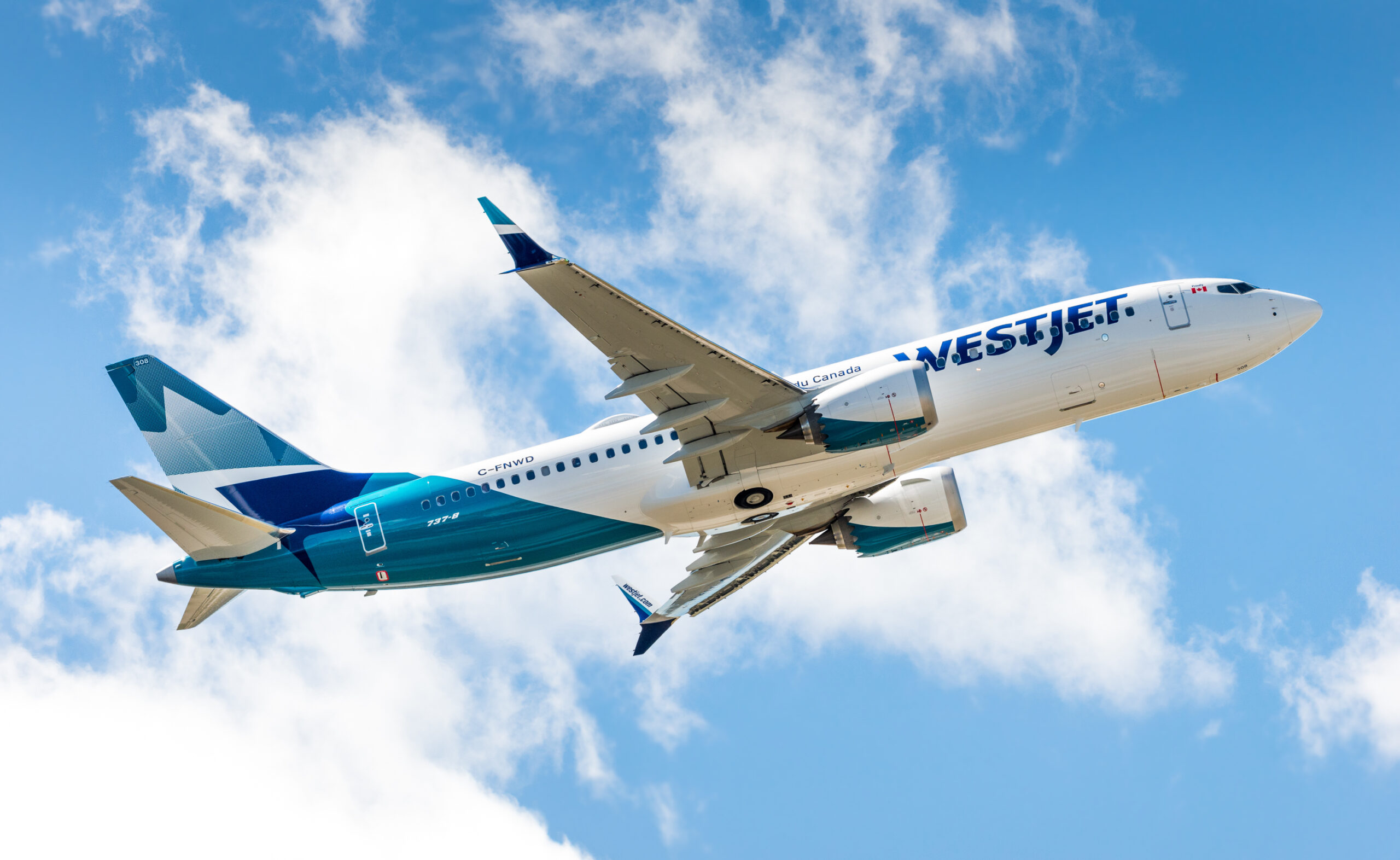WestJet Airlines, Makes Hard Landing In Calgary Airport… Resulting In No
Unruly Passenger Forces Emergency Landing on WestJet Flight: A Close Call in Canadian Airspace
A routine flight from Prince Rupert to Calgary turned into a scene of alarm and quick action when an unruly passenger forced WestJet to make an emergency landing in Terrace, British Columbia, in May 2024. The incident raised serious questions about passenger screening, mental health issues, and in-flight safety as airlines face an increasing number of similar cases worldwide.
A Routine Flight Turns Chaotic
The WestJet flight, scheduled for just under two hours, had been airborne for less than 45 minutes when a male passenger began behaving erratically. According to witnesses, he appeared agitated and disoriented shortly after takeoff. Passengers seated nearby reported hearing the man muttering incoherently and walking up and down the aisles. Flight attendants tried to calm him and asked him to return to his seat, but his behavior escalated rapidly.
The situation took a frightening turn when the passenger allegedly tried to open one of the emergency exits while the plane was still at cruising altitude. Although it is virtually impossible to open aircraft doors at high altitudes due to cabin pressure, the action itself caused panic among passengers and posed a clear threat to safety.
Several passengers and crew members quickly intervened to restrain the individual. Using seatbelt extenders and temporary restraints available onboard, they managed to subdue him until the aircraft could be safely diverted.
Emergency Landing in Terrace
Recognizing the seriousness of the situation, the pilot made an urgent decision to reroute the flight to the nearest suitable airport—Terrace-Kitimat Airport in northern British Columbia. Emergency services were alerted while the aircraft was still in the air, and law enforcement was on standby upon landing.
The plane landed safely, and police boarded the aircraft immediately. The man was taken into custody without further resistance. Authorities later confirmed that he was detained under the Mental Health Act, indicating that his behavior was likely due to a psychiatric condition rather than criminal intent.
No Injuries, But Emotional Impact
No physical injuries were reported among the 75 passengers and five crew members aboard the flight. However, the emotional impact of the incident was significant. Several passengers reported being visibly shaken and anxious following the event.
“Honestly, I thought something terrible was going to happen,” one passenger told local media. “You never expect this kind of thing when you board a flight. The crew and other passengers did a great job, but it was a scary situation.”
Another traveler praised the calm demeanor of the flight attendants and credited them with helping to prevent a more serious outcome. “They acted quickly and didn’t let the situation spiral out of control. That’s what kept us safe.”
WestJet Responds
In the aftermath of the emergency landing, WestJet released a statement commending the crew and passengers for their actions. “The safety of our guests and crew is always our highest priority. We thank our flight crew for their professionalism and our guests for their cooperation in helping resolve a difficult and unexpected situation,” the airline stated.
The company also confirmed that all affected passengers were accommodated in Terrace overnight and rebooked on alternate flights the following day. Counseling and support services were offered to those who experienced distress as a result of the incident.
Broader Implications: Mental Health and Aviation
This incident sheds light on the increasing number of in-flight disturbances involving individuals with mental health challenges. As air travel rebounds following the pandemic, airlines around the world are reporting more cases of unruly passengers. According to recent data from the International Air Transport Association (IATA), such events are up nearly 30% from previous years.
Aviation safety experts and mental health advocates have both weighed in on the Terrace incident, pointing to the need for better systems of support and early intervention.
“This isn’t just a matter of airline policy—it’s a societal issue,” said Dr. Elaine Morris, a Canadian mental health researcher. “We need to ensure that people with mental health conditions have access to care and are supported before they ever find themselves in high-stress environments like air travel.”
Challenges in Prevention
Preventing such incidents is not straightforward. Airlines are limited in their ability to screen passengers for mental health conditions due to privacy laws and ethical concerns. While some suggest mandatory health declarations before travel, others argue that such policies could be discriminatory and ineffective.
“Most people with mental health conditions are not dangerous,” Dr. Morris added. “What we need is a compassionate approach that doesn’t criminalize mental illness but does prioritize safety for everyone onboard.”
In Canada, passengers showing signs of psychiatric distress can be detained under the Mental Health Act if they pose a danger to themselves or others. However, intervention usually occurs after an incident, not before.
A Wake-Up Call for Airlines?
For WestJet, this incident serves as a reminder of the importance of ongoing crew training, passenger awareness, and emergency preparedness. The airline has invested in training staff to manage disruptive passengers using de-escalation techniques and physical restraint when necessary. But as more people take to the skies, airlines may need to reevaluate how they balance inclusivity and safety.
“Flight crews are trained for medical emergencies, turbulence, and more—but they’re increasingly being asked to handle psychiatric emergencies as well,” said aviation analyst Jordan Liu. “That’s a heavy responsibility, and it may require changes in how airlines operate.”
What happened on that May flight to Calgary could have ended much worse. Thanks to the quick response of passengers and crew, a potential tragedy was averted. Still, the incident serves as a sobering reminder of the unpredictability of human behavior and the challenges facing modern aviation.
WestJet continues to investigate the event internally, while authorities work to ensure the individual involved receives appropriate mental health care. For the passengers who lived through it, the experience will likely remain unforgettable—and for the aviation industry, it’s yet another reason to review and reinforce safety protocols.
—
**Author:** Favour
**Topic:** Airline Safety / Mental Health / WestJet





